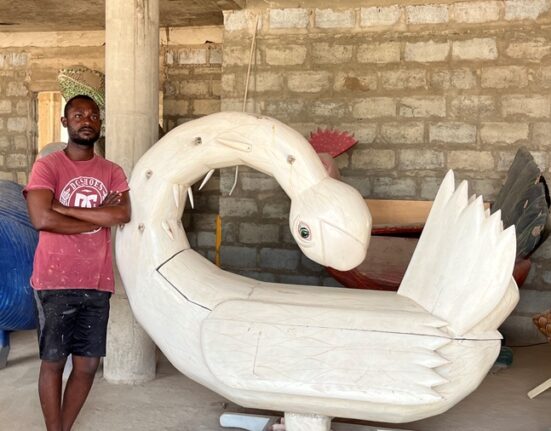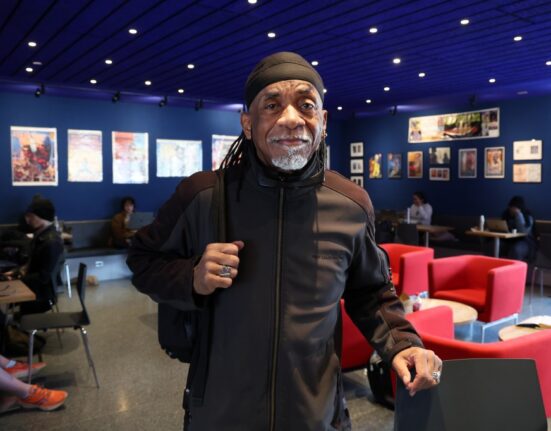“A message to the new generation of interns: you’re not just a doctor—you’re an artist, too.”
It’s the first day of residency. You enter the hospital, trying to recall basic medicine after months away from patient care. Gone are the days of hovering between unpaid trainees and health care providers. Gone are the days when you could deploy the instinctive, age-old adage, “I’m just the medical student.”
During graduation this year, I realized that after decades of education, sacrifice, and perseverance, we have finally become the next generation of interns. Soon, we will join the new line of defense, serving hundreds of patients and providing hospital coverage throughout the day and night.
But what does it mean to have “Dr.” in our names? And in the years ahead, how can we stay true to ourselves in a profession that continues to grapple with physician burnout and compassion fatigue?
Some of these answers lie in nourishing the childlike wonder and creative imagination in all of us.
As a medical student, I often drowned in the rigorous schedule and constant pressure to perform. To stay afloat, I’ve learned to maintain humanism by leaning into wonder and imagination (yes, two things we playfully enjoyed as kids). My hope is that, as physicians, we will strive to nurture the magic of imagination. Here’s how:
1. Find awe in simple moments. Remember your most wondrous day in medical school? Not your best or worst day, but a day you were filled with wonder. Maybe you were in an anatomy lab holding the human heart or in the operating room admiring a procedure.
What you likely experienced was an “awe moment,” a sense of wonder when you felt part of something bigger than yourself. Wonder grows our capacity for imagination; in pure astonishment, we feel limitless.
Take your preclinical years, for instance. You must have felt at least a little excited to use your otoscope for the first time—likely on your disgruntled roommate, who (quite literally) lent you an ear. In these simple moments, we marveled at the pearliness of the tympanic membrane and imagined what it’d be like to treat a real patient. We were inspired to ask questions, discover answers, and envision possibilities.
In residency, the hours will feel endless, and the learning curve steep. But the opportunities to welcome wonder are just as infinite, whether in a patient’s story, the kindness of a caregiver, or the sound of a beating heart.
2. Use imagination as a tool for resilience. Let’s imagine your hardest day in residency. Perhaps you’ve been working 28 straight hours or had a difficult conversation with a patient. Whatever it is, these days will cause us to doubt ourselves the most.
Interestingly, while a regular dose of awe can promote emotional well-being, imagination can help us cope with stress and uncertainty. As a medical student, you might recall a moment that left you reeling—a medical error or a fatal Code Blue. For me, it was the first time I experienced the death of a patient.
In the refuge of our inner worlds, we can process alternative outcomes and reframe the meaning of a tough reality. Many of us convey our lessons learned through creative “therapies”—art and music, to name a few. Whether you’ve found self-expression or are still hunting for the optimal outlets, let the creative juices flow.
3. Bridge imagination and impact. Let’s imagine the best day in your career. Maybe you’ve finally developed that groundbreaking surgical intervention or discovered cures for diseases once thought incurable. Ideas born from your imagination have now become reality.
For many, being a doctor can be just a job. But what if it was more than that—a calling or a purpose. What could you contribute and create?
I find purpose in a simple philosophy: “There must be a better way.” It’s rooted in my upbringing in an immigrant family. As teenagers, my parents escaped Vietnam to enter an unfamiliar world. By envisioning a better way to live, they found the courage to persist through sacrifice and hardship.
We’ve all learned from our villages. In fact, it’s because of our villages that we had the privilege to spend days in medical school, not only procrastinating on Anki decks but also imagining something of our own. We could daydream of building a future different than what currently exists: one where all patients, regardless of background, have access to the care they need. Where racial injustices and systems of oppression do not exist. Where health care is more efficient, cost-effective, and culturally and structurally competent.
Of course, dreaming is just one step; changing the status quo takes hard work, too. But imagination is the foundation, the spark that ignites us. We’re entering medicine at a time when global challenges—conflict, climate change, injustice—entwine deeply with our profession. A time when new technologies and models of care push us to evolve rapidly. Figuring out how to solve and align these moving pieces requires new ideas and innovative thinking. It requires us to not just be doctors but also health care leaders, policymakers, innovators, and advocates. The need for physicians who have the audacity to imagine—and pursue—a brighter possibility is greater than ever.
One of my favorite quotes highlights the power of imagination, and it comes from a leadership poem by Mary Lou Anderson. She writes, “Leaders are called to stand in that lonely place between the no longer and the not yet…And intentionally make decisions that will…create history.” To imagine is to envision something that is not currently present. When you look in your crystal ball, what’s missing from that place between the “no longer” and “not yet” that you want to change?
So, when you enter the resident workroom that first day, don’t forget that you’re more than “just the intern.” You’re an artist, too. Let imagination be your canvas, purpose be your paintbrush, and hard work be your paint. If you don’t create that picture, then who will?
It all starts here, in this moment—with a vision.
Audrey Nguyen is a psychiatry resident.








